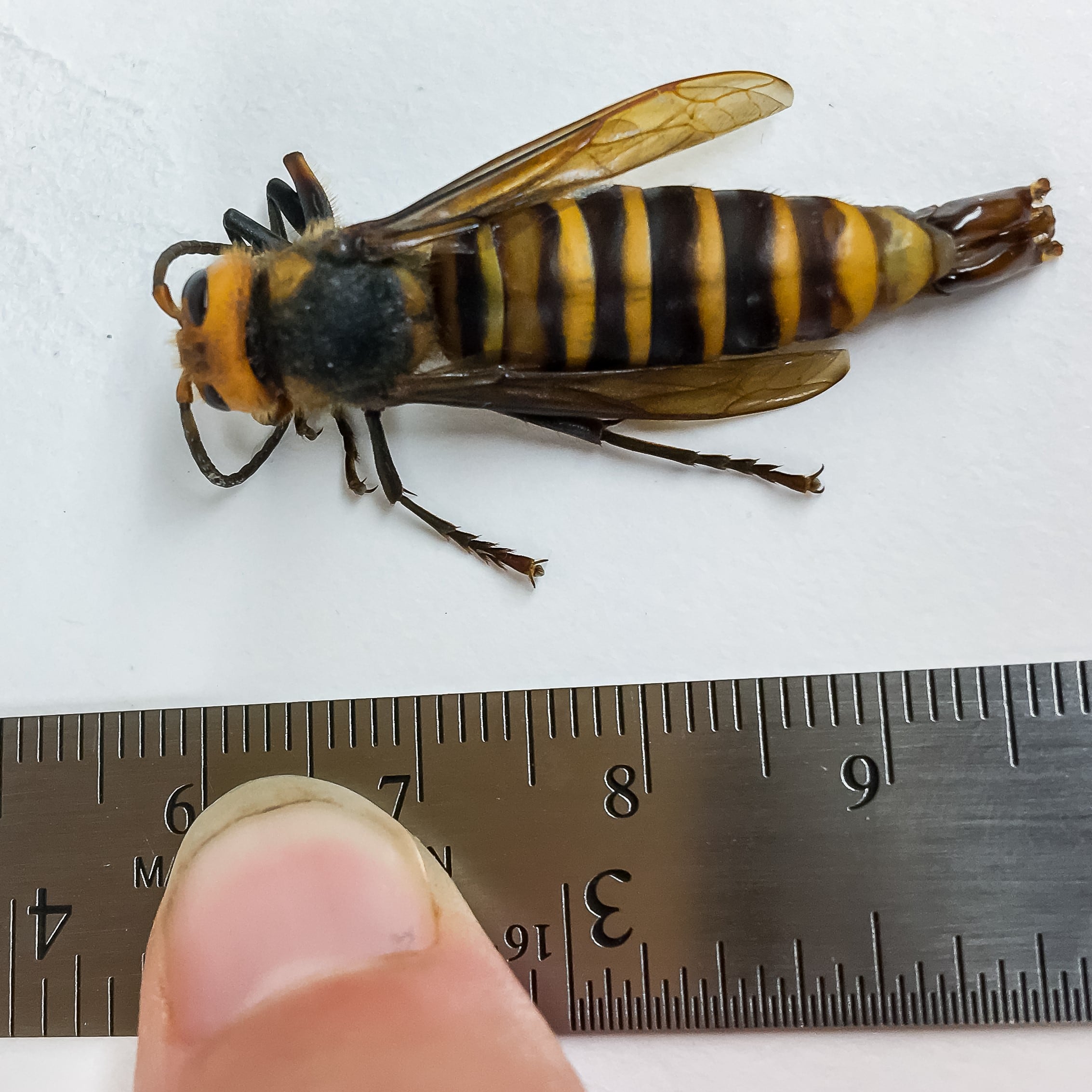BC, US team up to fight Asian Giant hornet (so-called 'murder hornet') influx
The Asian giant hornet, an invasive pest that threatens pollinators and ignores international borders, is the focus of an international effort to eradicate it in the Pacific Northwest.
That is why in the coming year, British Columbia, the State of Washington and U.S. federal agencies are collaborating on plans to track, trap and eradicate any Asian giant hornets that are found.
In British Columbia, the 2021 Asian giant hornet surveillance program will include traps in areas where there were previous findings, as well as continued outreach and networking with B.C. beekeepers, local governments and partner agencies in those areas. This work will continue last year’s efforts with comprehensive surveys in Nanaimo and the Cowichan Valley on Vancouver Island, and from White Rock to Aldergrove in the Fraser Valley.
Six hornet specimens were collected in the Fraser Valley through public reporting. No sightings or collection of Asian giant hornets were reported on Vancouver Island in 2020, which could be declared Asian giant hornet free if no specimens are reported this year.
Washington state’s plans are similar to last year’s, including a strong emphasis on public outreach, reporting and trapping in addition to the agency’s trapping. The Washington State Department of Agriculture (WSDA) will continue to use orange juice and rice cooking wine in traps. Citizen scientists will have the option of using either orange juice or a brown sugar-based bait.
WSDA’s trapping will remain focused on areas in Whatcom County where Asian giant hornets were detected in 2019 and 2020. Residents in Whatcom, Skagit, San Juan, Island, Jefferson and Clallam counties are especially encouraged to participate in citizen scientist trapping beginning in July 2021.
In addition to detection and eradication programs, several agencies, including Washington State University, the U.S. Department of Agriculture’s (USDA) Animal and Plant Health Inspection Service and the USDA Agricultural Research Service, are conducting research to support detection and eradication.
Reports from the public have been crucial for locating Asian giant hornets. Last year, half of the confirmed reports in Washington state and all of the confirmed reports in British Columbia were from members of the public.
British Columbians who think they may have seen an Asian giant hornet can report their findings to the Invasive Species Council of BC:
- by telephone, toll-free: 1 888 933-3722;
- via the council’s “Report Invasives” mobile phone app, or
- online: https://bcinvasives.ca/take-action/report/
Washington state residents are asked to continue to report all sightings of Asian giant hornet to WSDA:
- by telephone, toll-free: 1 800 443-6684;
- via email: hornets@agr.wa.gov; or
- online: agr.wa.gov/hornets


























Comments